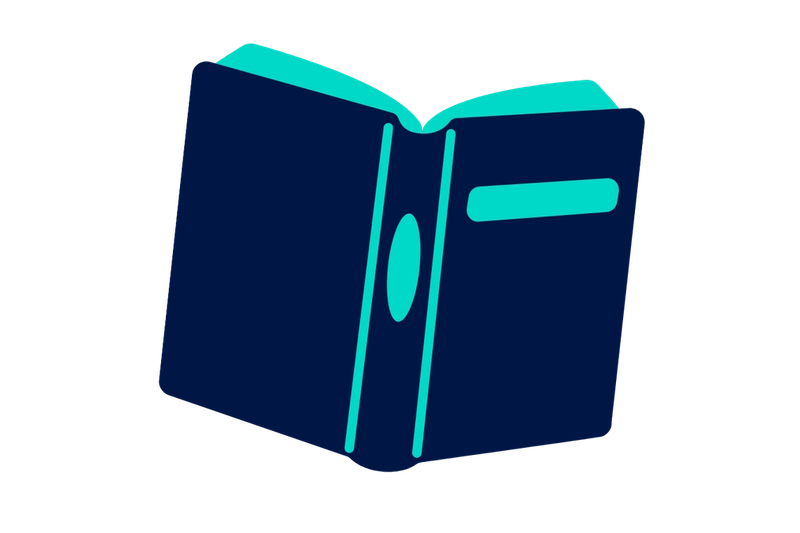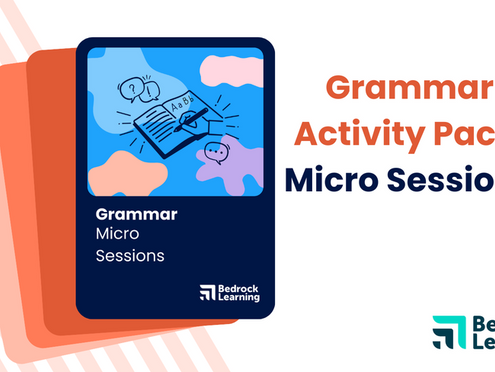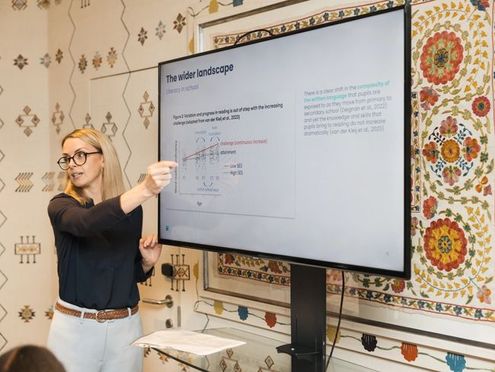It’s easy to forget what it’s actually like to be at school. But I remembered something really poignant and moving that once happened to me.
I was in an English lesson in year 9, and we’d just had an assessment on Romeo & Juliet. My best mate sat next to me; I looked at his work and - no word of a lie - my breath was taken away. His eloquence was unlike anything I had even realised was possible.
He wasn’t using the sentence stems or key words that we’d been given; his understanding and expression was just transcendent of anything I’d even comprehended. I was in a race I didn’t even know I was in. And I’d already lost.
And I couldn’t even really pin down anything specific that he’d done. It wasn’t so much what he’d written, but the way he’d gone about expressing himself. I remember feeling powerless and genuinely helpless. I wanted to be more like that, but I felt like it was so beyond my grasp that writing like this was akin to time travel or flying.
The brilliance of teachers
When you consider that I’m now an English teacher and work nationwide with schools to develop their literacy agendas, you can probably see why this life experience has stayed with me.
This is where teachers are true gamechangers. I wasn’t going to reach my mate’s heights straight away, but there’s always room for incremental improvement.
Yes, some learners come from more learned households than others. Yes, some come from more affluent households than others. But no learner comes from a household that happens to have experts in every conceivable subject. For the vast majority of learners, as their subject teacher, you are the sole conduit of knowledge and experience for that subject.
We’ve written elsewhere about disciplinary literacy, what it is, and how to do it. But I think we need to remind ourselves of its significance. The term has moved the dial in a way that literacy on its own probably didn’t; if nothing else, it’s a means of making sure that all teachers know they have some skin in the game.
Direct instruction
Whether we talk about cognitive load, Rosenshine’s Principles or however else we access this space, one thing is clear: being clear with learners about specificity of writing in your subject is crucial. This doesn’t mean we all need to turn into grammar experts (although alluding to grammar is important); but it does mean we, at the very least, need to develop our own meta understanding of the types of writing that learners need in order to succeed in your subject.
Timothy Shanahan writes brilliantly on this issue. Let’s consider what he says about different subjects:
History:
Historians grapple with varied records and historical accounts, trying to construct a theory of what happened, what was significant, what motivated the actions, what actions caused which outcomes, what were the competing goals of the various participants.
English Literature:
Literature creates an imaginary world through an author’s linguistic choices, and it is those choices that are examined and evaluated.
Mathematics:
Mathematicians recognise that maths text should be elegant, including only absolutely necessary information, which is also why mathematics requires so much intensive, repetitive reading.
Science:
Scientific knowledge—and how it is determined—is complex. The content knowledge of science is classificatory, definitional, and process oriented.
Giving learners the right to write
As teachers, we need to celebrate being the gateway to the disciplines that we have dedicated our lives to. We need to work out what these modes of writing look like, and how we can support our learners to move towards them. The Writing Revolution offers an incredible point of departure here; despite looking big, it’s actually very accessible to read and you can dip in and out of different parts. We need to move beyond sentence starters and keywords: whether we like it or not, this is only part of the story.
For the columns above, we need to ask: “what does this actually look like?” A colleague of mine used to talk about reverse engineering quality responses, and not being afraid to go back to the beginning with it. There’s a healthy interplay between the technical aspects of writing in a subject and the rich, complex knowledge that these technical aspects are expressing.
We hope our 'The Right to Write' special series will help you to achieve this, and we’d love to work alongside you to achieve this. Whether it be using our Core Curriculum, and how it can provide insights into optimising your tier 2 and grammar curriculum, or using our incredible Mapper platform to sequence powerful knowledge that pupils can explore in their writing.
You can download our The Right to Write guide for your subject here:
- The Right to Write: English (Lit & Lang)
- The Right to Write: Science
- The Right to Write: History
- The Right to Write: Psychology
- The Right to Write: Geography
- The Right to Write: Business Studies
Above all, have fun, explore, and enjoy being the expert: it’s why you became a teacher!




